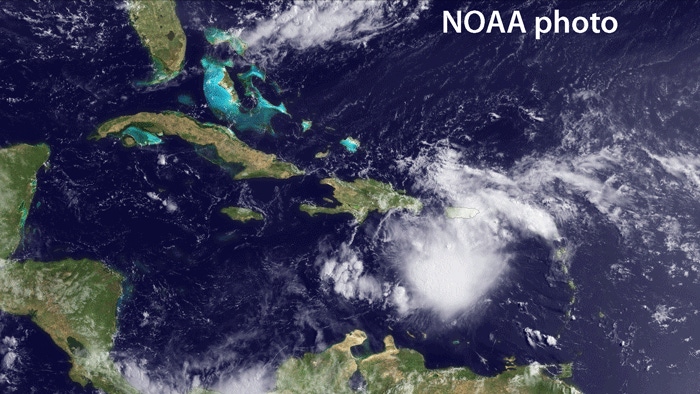
• Your personal safety and that of anyone helping you should be the first consideration.• Appropriate personal safety equipment should be used, such as heavy-duty rubber gloves, rubber boots, a chemical- resistant apron, and eye protection.• A respirator may be necessary for some chemicals. If you know the product or products damaged, use the personal protection as required on those labels.
August 24, 2011

When the flood waters subside after a hurricane, carefully evaluate the pesticide storage area.
If this area was under water, damaged containers and spilled product could result in a potentially hazardous situation. Deal with it the same way as any spill.
Your personal safety and that of anyone helping you should be the first consideration. Of course, appropriate personal safety equipment should be used, such as heavy-duty rubber gloves, rubber boots, a chemical- resistant apron, and eye protection.
A respirator may be necessary for some chemicals. If you know the product or products damaged, use the personal protection as required on those labels.
When in doubt, use the personal protection equipment suggested. Then follow these standard guidelines for handling spills:
1. Control the spill: Stop the spill as quickly as possible by restoring the container to its upright position, closing a leaking valve or hose, or putting a secondary container in place to catch the leaking solution.
Bags that are broken or soaked through need to be carefully placed in a secondary container, such as a drum or heavy plastic bags.
2. Call your retailer: Get advice quickly from your agricultural chemical retailer or manufacturer on cleanup of specific chemicals.
They also can provide you with special safety advice and other information.
3. Contain the spread: When the leak has been stopped, contain the spread of the spill by creating dams of absorbent material in the path of the spilled liquid. It may be most important to first divert a spill away from a nearby pond, stream, or storm sewer before attempting to stop the spill or leak.
This is a judgement call that only you can make.
Don’t delay
4. Begin cleanup promptly: As soon as the situation has been stabilized, begin cleaning it up. Quick response to a spill is not only required in many states, but will prevent the chemical from leaching or washing away in a rainstorm. If possible, stand upwind or use a fan for ventilation.
5. Use absorbent materials: On pavement or concrete, use absorbent materials to capture the spilled liquids.
They then can then be shoveled or swept into disposal containers. Non-chlorinated pet litter is an excellent, inexpensive absorbent material to keep on hand for such purposes. Large spills may require commercially available pillows of highly absorbent materials.
6. Properly dispose of the damaged or absorbent materials: Contact your County Extension Service office to find out where to dispose of the damaged pesticides.
If there is standing water in your pesticide storage facility, assume it is hazardous until you can check all pesticide containers for leaks or breakage. Do not allow any skin contact with this water. If there is no evidence of pesticide leakage into the water, it can be safely pumped out.
However, if pesticides have mixed with this water, the water will have to be pumped to a storage tank for land application. Land application has to be at or below label rates, so first the amount of product spillage will have to be estimated. The water should be filtered before it enters the spray tank to avoid nozzle clogging.
Be sure to wear your personal protection equipment during all cleanup operations.
If possible, have someone remain nearby checking on you regularly in case you are injured or overcome during cleanup.
You may need to obtain further information or assistance before cleaning up the pesticide storage area.
In addition to your retail dealer and the manufacturers, the following is a list of numbers where information may be obtained:
• NCDA&CS Pesticide Section, 919-733-3556.
• NCDA&CS Pesticide Disposal Assistance Program, 919-715-9023.
• Chemtrec Emergency Hotline, 1-800-424-9300.
• EPA Pesticide Management and Disposal, 703-305-7385.
• EPA Hazardous Waste Hotline, 1-800-424-9346.
• EPA Safe Drinking Water Hotline, 1-800-426-4791.
You May Also Like



